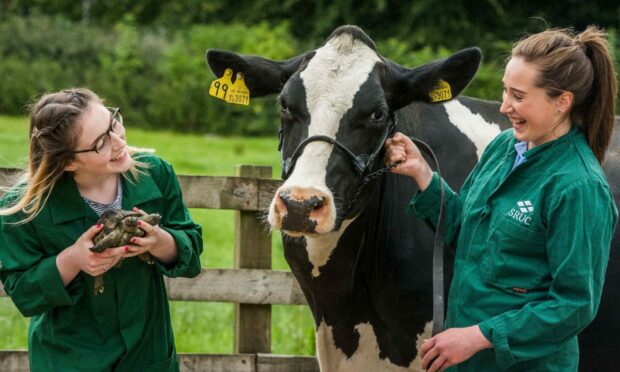The Scottish Government has been told that vets must be kept fully informed about plans to build a new vet school, develop agricultural policy and launch a new national veterinary service.
Clear messages about providing adequate resources and co-ordinating livestock disease control with the rest of the UK were delivered by Justine Shotton, the president of the British Veterinary Association (BVA), at a dinner in the Scottish Parliament attended by Rural Affairs Secretary Mairi Gougeon, MSPs and industry leaders.
While Ms Shotton praised plans to create a new vet school in Scotland, she insisted any move must go hand-in-hand with extra funding and staffing.
“BVA is fully on board with SRUC’s desire to shape its proposed new school in a way that addresses shortages, emphasises the importance of rural communities to Scotland’s economy, and prioritises widening access for students from a diverse range of backgrounds,” she said.
“But to give these future vets the best shot at success, we must ensure that we aren’t spreading existing resource too thin.”
Turning to the planned Scottish Veterinary Service, which will replace field animal health and welfare functions currently delivered by the Animal and Plant Health Agency, she said the BVA recognised disease control would form a large part of its remit, and there were positives to a Scotland-centric approach which could focus on the animal health and welfare priorities that matter most here.
She added: “However, I don’t have to tell any of you around the room tonight that diseases and animal welfare problems don’t respect borders.
“It will therefore be critical that the new service has systems that collaborate and liaise with the rest of the UK, and beyond, on disease surveillance, data collection, and information sharing. We’re engaging closely to ensure that veterinary expertise is at the heart of these new proposals.”
Ms Shotton said the BVA also wanted to be able to influence the formulation of Scotland’s new agricultural policy.
“We’ve cautioned that veterinary engagement is absolutely key as these plans develop, and animal health and welfare must be recognised as a desired outcome in its own right as well as being tightly intertwined with climate and productivity goals,” she said.
Ms Shotton also referred to growing demands on her members in the wake of Brexit, particularly in relation to vet certification for products of animal origin, live farm animals and pets travelling to and from the UK, and she called for understanding from both Westminster and Holyrood and a readiness to work with the BVA on measures that would mitigate the pressures.
She warned that nearly six in 10 vets in Scotland had reported aggressive and intimidating behaviour from clients last year, and aid many had also seen a rise in levels of online abuse such as trolling and unfair reviews
“The vast majority of clients have been understanding and supportive, but it’s simply unacceptable that anyone should face abuse and threats just for doing their job,” she said.

